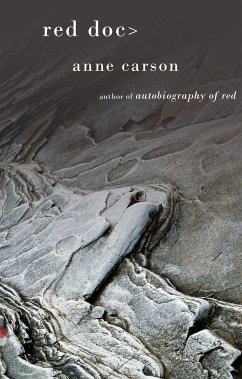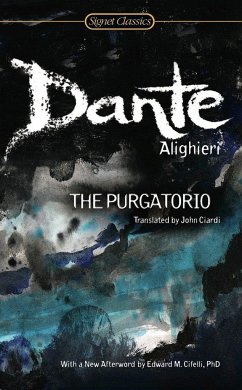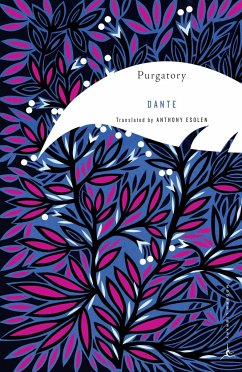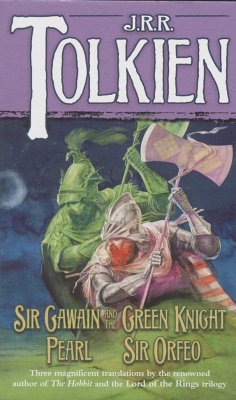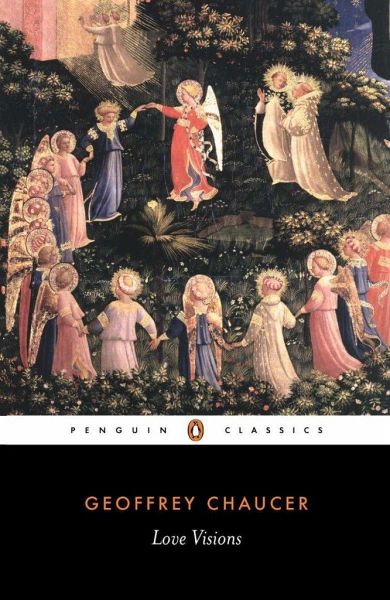
Love Visions

PAYBACK Punkte
6 °P sammeln!
Spanning Chaucer's working life, these four poems build on the medieval convention of 'love visions' - poems inspired by dreams, woven into rich allegories about the rituals and emotions of courtly love. In The Book of the Duchess, the most traditional of the four, the dreamer meets a widower who has loved and lost the perfect lady, and The House of Fame describes a dream journey in which the poet meets with classical divinities. Witty, lively and playful, The Parliament of Birds details an encounter with the birds of the world in the Garden of Nature as they seek to meet their mates, while Th...
Spanning Chaucer's working life, these four poems build on the medieval convention of 'love visions' - poems inspired by dreams, woven into rich allegories about the rituals and emotions of courtly love. In The Book of the Duchess, the most traditional of the four, the dreamer meets a widower who has loved and lost the perfect lady, and The House of Fame describes a dream journey in which the poet meets with classical divinities. Witty, lively and playful, The Parliament of Birds details an encounter with the birds of the world in the Garden of Nature as they seek to meet their mates, while The Legend of Good Women sees Chaucer being censured by the God of Love, and seeking to make amends, for writing poems that depict unfaithful women. Together, the four create a marvellously witty, lively and humane self-portrait of the poet.



